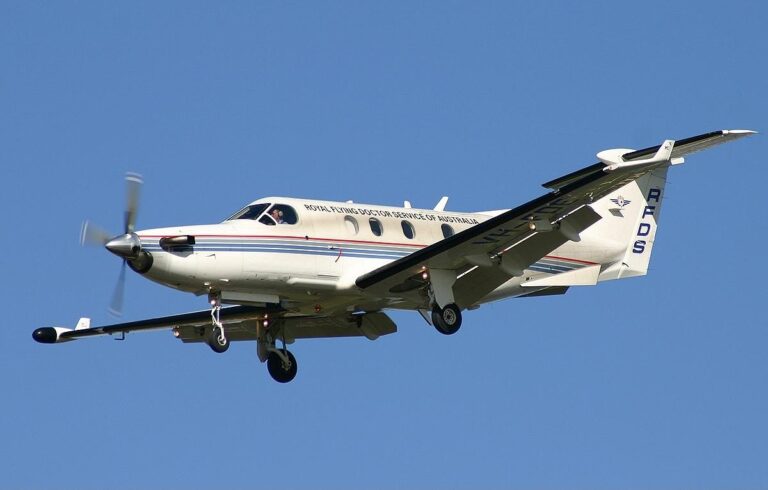Swiss aircraft manufacturer Pilatus has temporarily halted deliveries of its popular PC-12 turboprop and PC-24 light jet models to the United States in response to a newly imposed 39% import tariff. The steep levies, enacted as part of ongoing trade tensions, have prompted the company to reassess its market strategy, highlighting the broader impact of tariffs on the aviation industry. This move raises concerns over potential disruptions in supply chains and the cost implications for American buyers of these versatile aircraft.
Pilatus Halts US Deliveries of PC-12 and PC-24 Jets Amid Import Tariff Dispute
Pilatus Aircraft has announced an immediate suspension of deliveries for its PC-12 and PC-24 aircraft models to customers in the United States. This move comes in response to the imposition of a steep 39% import tariff on Swiss-made private jets, which the company warns will significantly disrupt its US market operations. The import tariff, enacted amid escalating trade tensions, has forced Pilatus to reassess its supply chain and pricing strategy, potentially impacting thousands of customers awaiting aircraft delivery.
The import tariff dispute has led to widespread concerns about the soaring costs for private aviation clientele in the US. Industry analysts highlight several critical implications:
- Increased aircraft prices due to the import levy, making private jets less accessible.
- Lengthened delivery times as manufacturers adjust production and logistics plans.
- Potential loss of competitiveness for Pilatus against other manufacturers not affected by the tariff.
| Model | Original Price | Post-Tariff Price | Delivery Status |
|---|---|---|---|
| PC-12 | $4.9 million | $6.8 million | On hold |
| PC-24 | $10.5 million | $14.6 million | On hold |
Impact of 39 Percent Tariff on Swiss Aircraft Manufacturer and US Market Access
Pilatus Aircraft’s decision to halt deliveries of its renowned PC-12 turboprop and PC-24 jets to the United States comes as a direct response to the newly imposed 39 percent import tariff. This sharp increase in costs has effectively raised the price of Swiss-made aircraft, thereby jeopardizing Pilatus’s competitive position within the key US market. The tariff aims to counteract perceived unfair trade practices but is inadvertently creating significant market access challenges for the Swiss manufacturer, impacting not just sales volumes but also customer confidence.
Industry insiders warn that these tariffs could disrupt longstanding supply chains and prompt broader repercussions such as:
- Delayed aircraft deliveries impacting operators’ fleet planning.
- Increased operational costs for US-based pilots and businesses relying on Pilatus aircraft.
- Potential market share loss as buyers explore alternative manufacturers unaffected by tariffs.
The evolving trade environment underscores the fragility of international aerospace relations and may push manufacturers to reconsider their manufacturing footprint or seek tariff exemptions to maintain viable access to crucial markets like the US.
| Aircraft Model | Price Impact (Approx.) | Delivery Status |
|---|---|---|
| Pilatus PC-12 | +39% | Paused |
| Pilatus PC-24 | +39% | Paused |
Analysis of Tariff Implications for Business Aviation Sector and Pilatus Competitiveness
The imposed 39% import tariff on Pilatus aircraft dramatically reshapes the competitive landscape of the US business aviation market, compelling the Swiss manufacturer to suspend deliveries of its popular PC-12 turboprops and PC-24 jets. This tariff inflates the cost base for operators, likely driving potential customers toward domestic or tariff-exempt alternatives, thereby squeezing Pilatus‚Äô market share in a highly price-sensitive segment. The immediate financial strain also hampers Pilatus’ strategic expansion plans in North America, historically one of its largest and most lucrative markets.
Key factors affecting Pilatus competitveness include:
- Pricing disadvantage: Elevated final cost due to tariffs limits Pilatus’ ability to offer competitive pricing.
- Market access challenges: Potential buyers may delay or cancel orders due to increased upfront expenses.
- Supply chain disruption: Uncertainty in delivery schedules could erode customer confidence.
| Impact Area | Effect on Pilatus |
|---|---|
| Cost Structure | +39% import duty inflates unit prices |
| Sales Volume | Projected 20-30% drop in US orders |
| Market Share | Risk of loss to US-built competitors |
Recommendations for Policy Adjustments to Facilitate Trade and Support Industry Growth
In light of the recent decision by Pilatus to halt deliveries of the PC-12 turboprop and PC-24 jets to the United States due to a hefty 39% import tariff, policymakers must urgently reconsider current trade restrictions that disrupt aviation industry dynamics. Implementing targeted tariff reductions or exemptions for specialized aircraft can significantly enhance market access, safeguard jobs, and stimulate innovation within this niche sector. Additionally, fostering dialogue between aerospace manufacturers and trade authorities can facilitate more responsive, adaptable policies that balance fair trade practices with competitive industry growth.
To effectively support manufacturers like Pilatus and others impacted by similar import barriers, governments should explore:
- Negotiated tariff reliefs for critical aerospace components and finished products.
- Incentives for local assembly or joint ventures to mitigate tariff impact while encouraging domestic investment.
- Streamlined customs procedures to reduce delays and cost burdens on exporters and importers.
- Investments in trade infrastructure to enhance supply chain resilience and global competitiveness.
| Policy Adjustment | Expected Benefit | Key Stakeholders |
|---|---|---|
| Tariff Reduction | Lower import costs, increased exports | Manufacturers, Importers, Consumers |
| Local Assembly Incentives | Job creation, technology transfer | Governments, Investors, Workforce |
| Customs Streamlining | Faster market entry, reduced costs | Logistics Providers, Regulators, Businesses |
To Wrap It Up
As Pilatus halts deliveries of its PC-12 and PC-24 jets to the United States in response to the newly imposed 39% import tariff, the move underscores the broader challenges facing international aerospace trade amid evolving trade policies. Industry stakeholders will be closely monitoring how this development influences market dynamics and whether negotiations or adjustments will pave the way for resumed operations. For now, Pilatus’s decision highlights the tangible impact of tariffs on cross-border commerce in the aviation sector.




